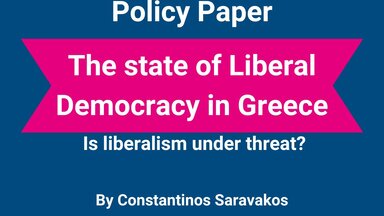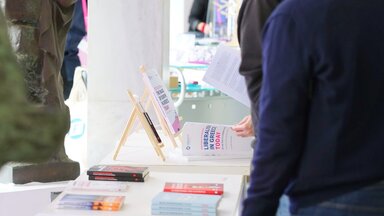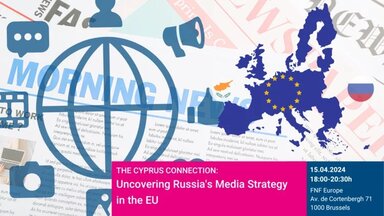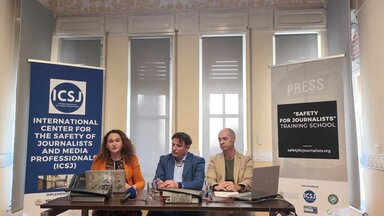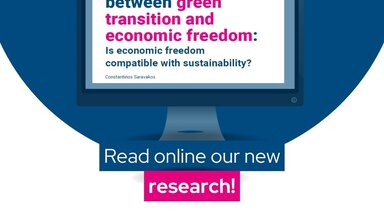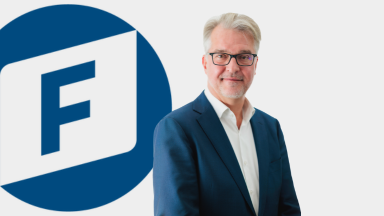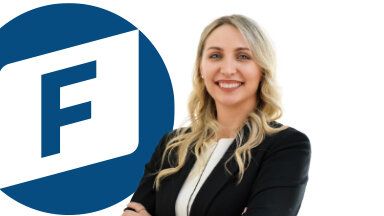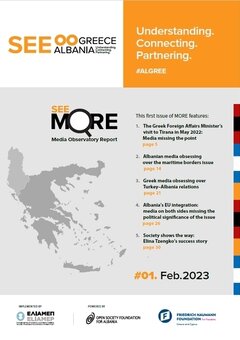Athens
The Friedrich Naumann Foundation for Freedom has been present in Greece since 2012 and is based in Athens. By strengthening liberal forces and conveying liberal values and positions, the Greece Office contributes to the development and consolidation of a pluralist democracy and an open, market economy and rule of law in Greece. It is committed to preserving freedom of action with the aim of strengthening European values in Greece.
The office of the Friedrich Naumann Foundation in Greece was closed on 31 December 2023. The office's website will no longer be updated. For further information, please contact the Regional Office Europe in Brussels.
News
-
Friedrich Naumann Foundation - FNF withdraws from Greece and Cyprus
The Friedrich Naumann Foundation for Freedom - Greece and Cyprus (FNF), which has been active in Greece since 2012, announces the closure of its Athens office and its total withdrawal from Greece and Cyprus.
-
Policy Paper: The state of Liberal Democracy in Greece: Is liberalism under threat?
This policy paper embarks on a thorough examination of the state of Liberal Democracy in Greece, employing the Liberal Democracy Index (LDI) as its primary analytical tool. Following a brief theoretical and methodological overview, the analysis underscores the challenges facing liberal democracy at regional and international levels, with a particular focus on the Greek institutional framework. Notably, Greece’s rank at 24th among the 27 EU member states in the Liberal Democracy Index signals significant shortcomings.
-
Publication - The Challenges of Liberal Democracy Today
The scholarly work presented at our joint conference with the Center for Liberal Studies, the Centre for Political Research of Panteion University, and the Laboratory of Political and Institutional Theory and History of Ideas of the University of Athens, promises to enrich academic discourse and offer innovative perspectives on navigating the complex challenges confronting liberal democracies today. We are confident that the papers produced will make a significant contribution to the academic community and help shape the path forward for Europe and beyond.
-
The Cyprus Connection: Uncovering Russia's Media Strategy in the EU
The fight against disinformation is a long-term challenge for European democracies, undermining citizens' trust in democracy and its institutions, and contributing to the polarization of public opinion and disruption of democratic processes. Addressing disinformation has become critically important in the context of Russia's war in Ukraine, with Russia conducting an unprecedented disinformation campaign since 2022. Ukraine is targeted by propaganda and disinformation as part of the Kremlin's hybrid warfare tactics. Join us in our event on 15.4.2024 at FNF Europe office.
-
Why are we afraid of establishing non-state universities?
The government, this week, is opening for public consultation a new bill, which among other things will make it possible to establish non-state universities. The impending vote on the bill and the official "opening" of the education market has stirred strong reactions from student unions, academic staff, and the opposition. However, this seems paradoxical when one considers that the overwhelming majority of Greek families already pay heavily for private tutoring and other forms of private education.
-
New study reveals the impact of hate speech on journalists across Southeast Europe
A new groundbreaking study titled "Hate Speech against Journalists" unveils the challenges and threats journalists face due to hate speech in Greece, Serbia, Kosovo, North Macedonia, and Bulgaria. Conducted by leading academic and media institutions, including the Peace Journalism Laboratory of AUTH, the University of Novi Sad, Hasan Prishtina University, Center for Social Innovations BLINK 42-21, and Blue Link, the research was supported by the Friedrich Naumann Foundation for Freedom - Greece and Cyprus.
-
The relationship between green transition and economic freedom: Is economic freedom compatible with sustainability?
This policy paper seeks to explore the relationship between economic freedom and sustainability. It begins by reviewing the empirical literature on how economic freedom's impact on sustainability can vary significantly based on specific contextual factors. Some studies indicate a positive correlation between greater economic freedom and improved environmental outcomes, particularly in countries that prioritize business-friendly environments, uphold strong property rights, and foster trade freedom. In these cases, economic freedom appears to contribute positively to environmental sustainability and reduced emissions. Conversely, economic freedom may exert adverse effects on environmental conditions, particularly in developing and emerging economies, where factors like limited regulatory control and unsustainable economic growth are associated with environmental degradation.

